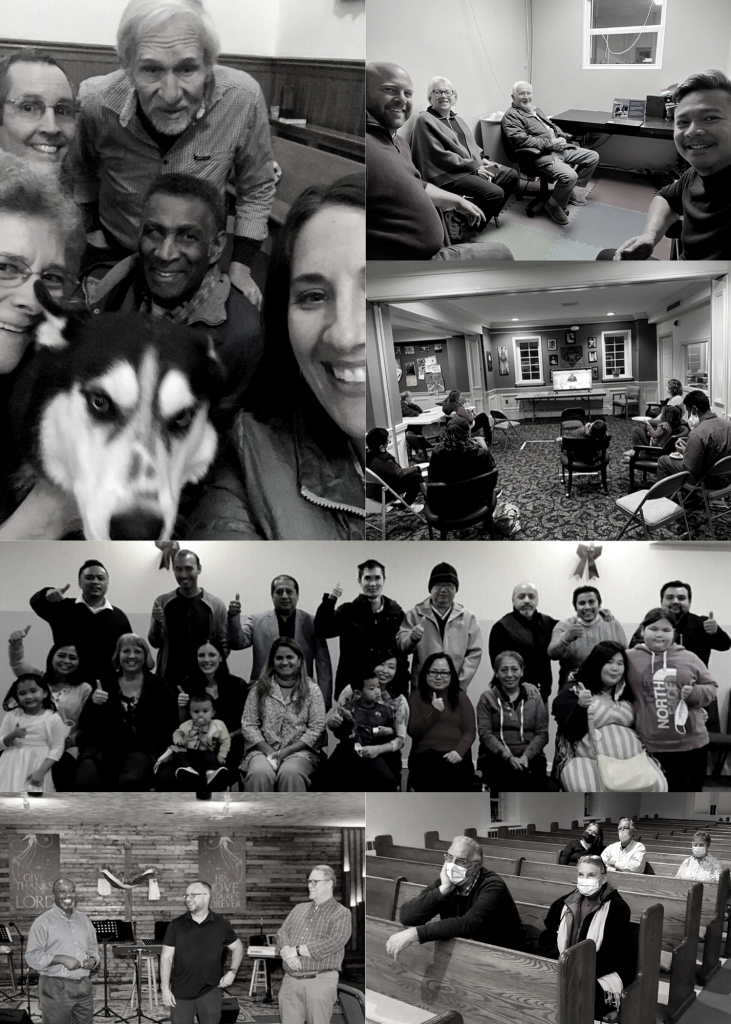(This is a shortened version of the full version of this article, from Leader magazine by Marta Castillo. Used by permission of MennoMedia.)
We at Mosaic Conference are working on an intercultural, missional, and formational puzzle with a thousand pieces. We have that overwhelming feeling most people experience when they open a puzzle box and pour out the thousand pieces onto a table. Where do they fit into the puzzle? How long will it take and who will persevere in the work? How many times will we be sidetracked by pieces that are wrongly placed, even with good intentions? Which pieces are being left out because they have not yet been turned over or have fallen on the floor?
This year, our Conference Assembly theme was “Mutual Transformation,” based on Romans 12:2–5. We are centered on our mutual need to be transformed by the renewing of our minds, by God, and by each other and centered on the work of the kingdom and being the body of Christ together.

TRANSFORMATION’S COST
The commitment and cost of mutual transformation is high and often unexpected. Most of us do not count on being transformed ourselves. The integrity of the mutual transformation process means that we must identify and decenter ourselves to recenter ourselves in Christ. It means that we must be brave, venture beyond our comfort zones, and stay at a table that is not of our making or design. Mutual transformation means that we must process uncomfortable truth about culture, history, bias, and worldview through the eyes of others.
Our “Going to the Margins: Kingdom Mission Strategy” statement pushes us to look and move outwardly even as we hold to the center. As followers of Jesus Christ, we are called to solidarity with those on the margins of the Christian community, our neighborhoods, and society at large, seeking transformation in ourselves, those to whom we minister, and the unjust systems we encounter.
OUR CONFESSION AND HOPE
We confess that we are lacking and have repeatedly tried and failed in several ways. We struggle to be less paternalistic and to develop partnerships that are mutually beneficial in our relationships with immigrant churches and churches of color. We depend too much on using money to solve problems instead of using creativity to build equitable relationships. We have repeatedly failed to confront racism in ways that are life-giving to our African American brothers and sisters and life-changing for our white brothers and sisters and for our system. We have sometimes failed to gather in congregations and people at whatever margin they find themselves.
The words of John Lewis—our beloved brother, civil rights leader, and US congressman—posted on Twitter in June 2018, ring out to us: “Do not get lost in a sea of despair. Be hopeful, be optimistic. Our struggle is not the struggle of a day, a week, a month, or a year, it is the struggle of a lifetime. Never, ever be afraid to make some noise and get in good trouble, necessary trouble.”
Noel Santiago, our Leadership Minister for missional transformation, noted in a conversation with me: “One difference between a puzzle and a mosaic is that a puzzle comes with precut pieces that have a similar quality and are pre-designed to fit together perfectly. A mosaic is comprised of very different shaped pieces that may even require some changing of a given piece to help it come together into one unified whole while retaining each unique shape.”
A mosaic is comprised of very different shaped pieces that may even require some changing of a given piece to help it come together into one unified whole while retaining each unique shape.
NOEL SANTIAGO
We know that we may be reshaped to make space for others—transformed because of their presence as one of us. At Mosaic, we see as though in a mirror, with little glimpses here and there of the reflections of God’s design for us. We expect to be formed and transformed, a mosaic that God can shine light through to draw others. We are “confident of this, that the one who began a good work among [us] will bring it to completion by the day of Jesus Christ” (Philippians 1:6).
A special thank you to Yvonne Platts, Noel Santiago, and Emily Ralph Servant, my conversation partners in the writing of this article.
The opinions expressed in articles posted on Mosaic’s website are those of the author and may not reflect the official policy of Mosaic Conference. Mosaic is a large conference, crossing ethnicities, geographies, generations, theologies, and politics. Each person can only speak for themselves; no one can represent “the conference.” May God give us the grace to hear what the Spirit is speaking to us through people with whom we disagree and the humility and courage to love one another even when those disagreements can’t be bridged.
